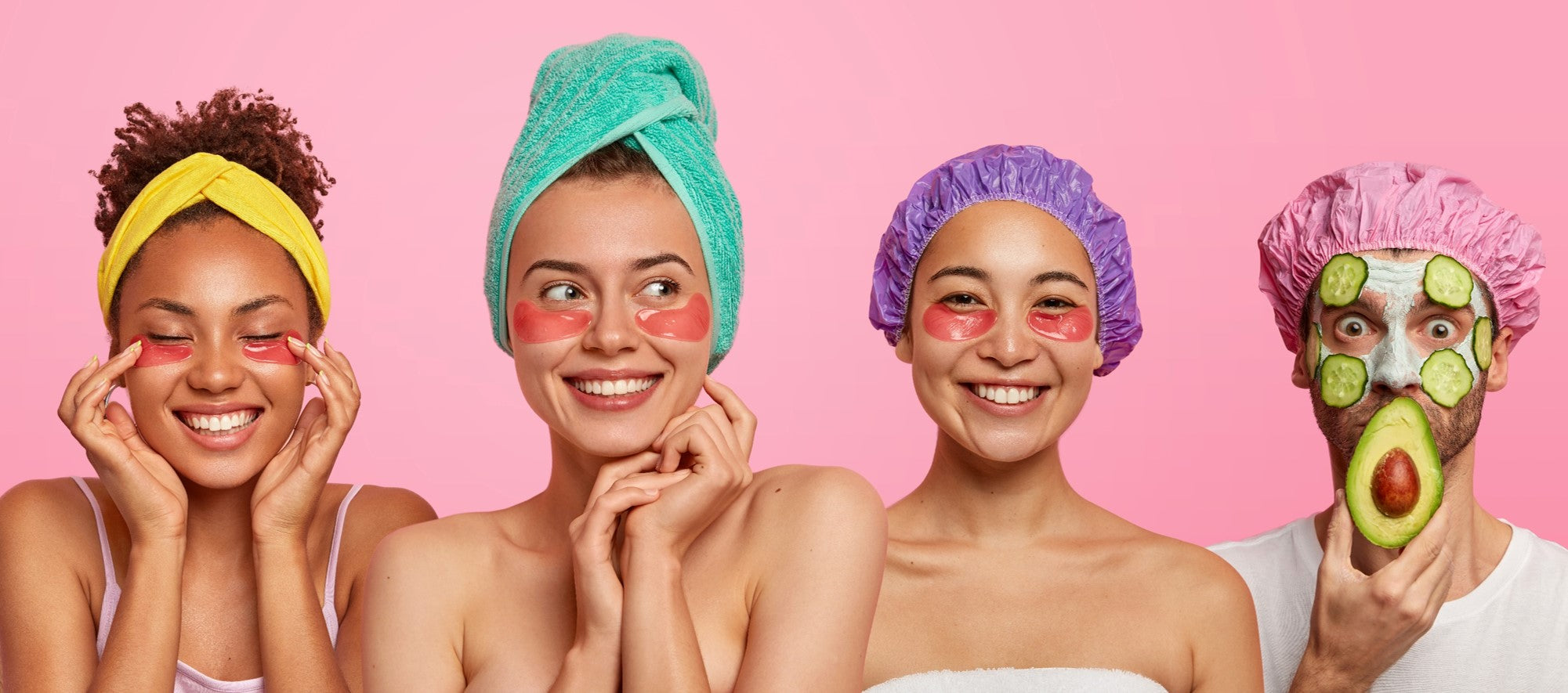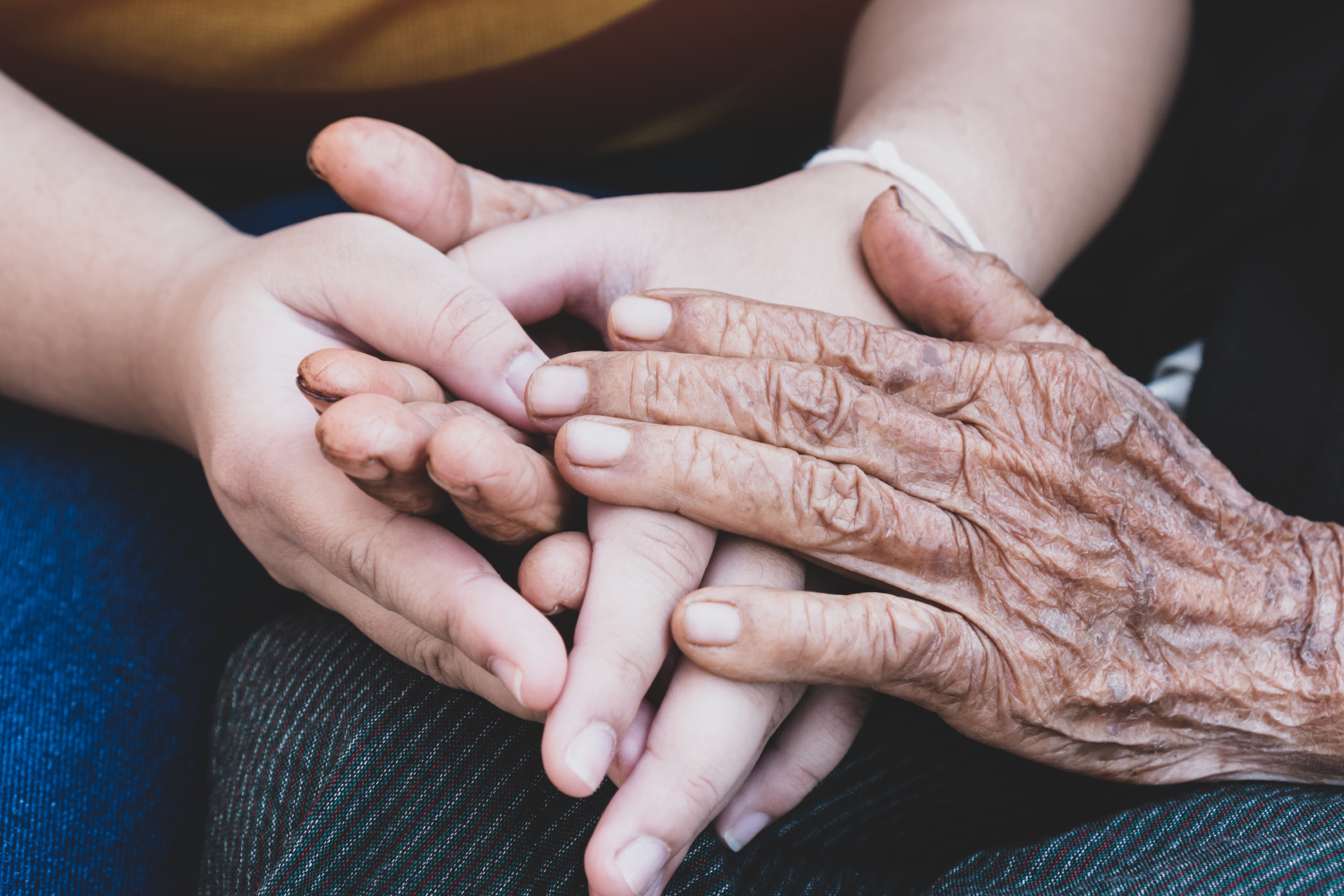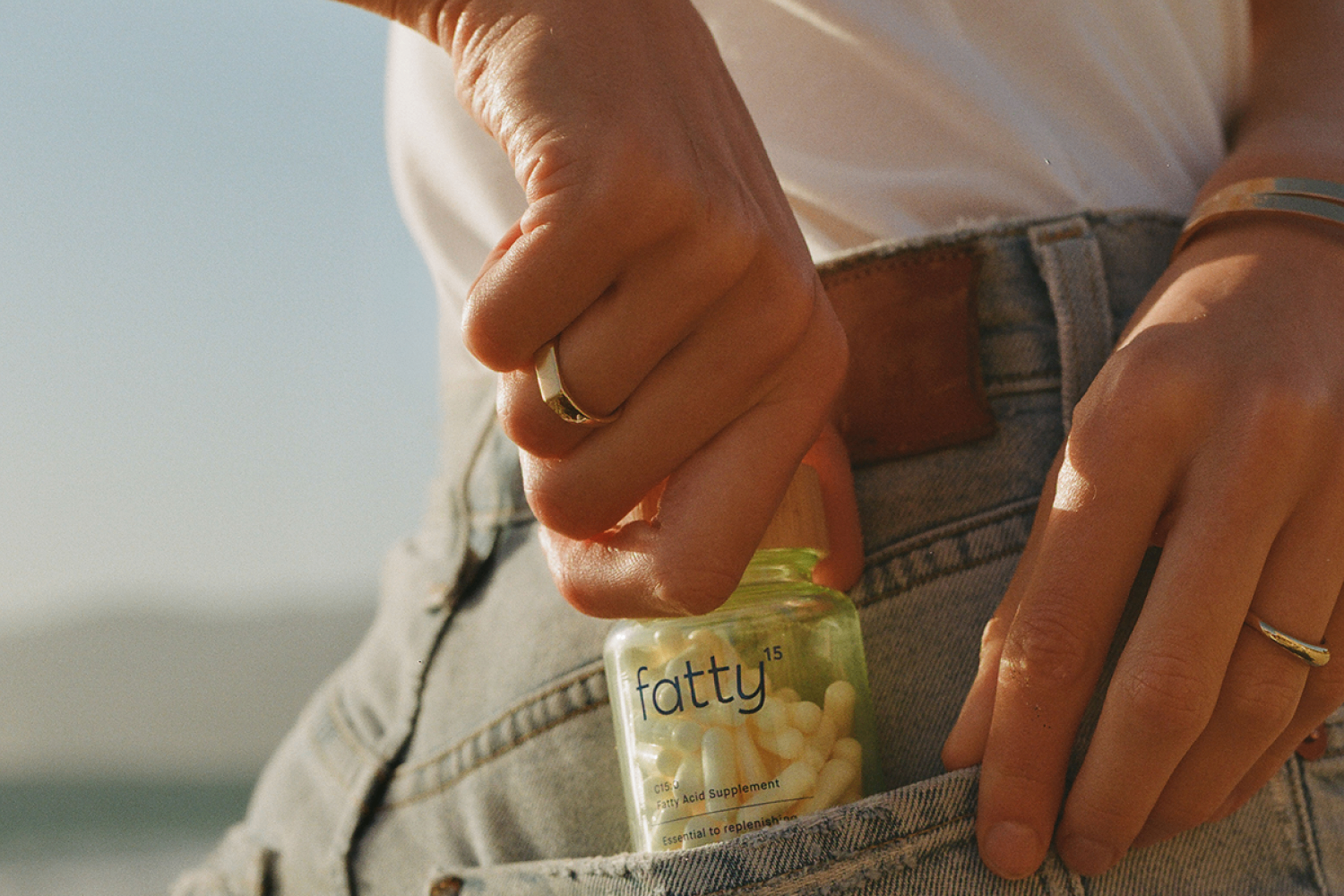
Dr. Eric Venn-Watson’s Highlights
-
- Premature skin aging involves the development of fine lines and wrinkles on the skin.
- Learn what causes them and what you can do to actively reduce the amount of premature aging your skin encounters.
At some point we all start noticing them. Tiny wrinkles around our eyes, creases on our foreheads, and folds near the corners of our noses and mouths.
Skin is elastic, and as we get older, that elastic starts to break down, making room for fine lines and wrinkles to move in, making us look older than we feel.
To understand why our skin ages, we have to understand how our skin works, what happens to it as we get older, and how environmental aspects affect our skin’s aging process.
Before you dive into the injectables, we’ve got some ways for you to protect your skin naturally from the visible signs of premature aging.
Understanding the Skin: Three Layers and How They Work
Your skin is made up of three separate layers: the epidermis, the dermis, and the hypodermis.
- The epidermis is the outermost layer of your skin. It waterproofs your body and protects you from pathogens.
- The dermis contains hair follicles, sweat glands, and connective tissue. If you have blemishes on your skin, this is the layer that forms them. Collagen and elastin, two proteins that give your skin a youthful appearance, are also found in this layer of your skin.
- The hypodermis is the deepest layer of your skin located below the dermis. This layer of skin contains fat and connective tissue. This layer of your skin attaches your skin to your bones and muscles. It also helps cushion your bones and muscles from injury when you fall or take a hit.
The three layers of your skin work together to form your body’s largest organ. Skin is considered youthful when it is:
- Free from sun spots or “age spots:
- Maintains elasticity
- Has a plump, “filled out” look
The two proteins found in your dermis (collagen and elastin) play a major role in skin youthfulness. They help your skin stay looking youthful and can help prevent the development of fine lines and wrinkles. Let’s look at some of the ways your skin ages.
There are two main categories of skin aging: extrinsic aging and intrinsic aging.
Extrinsic Aging
Extrinsic aging refers to aging that happens as a result of external stressors our skin encounters during our lifetime. From sun exposure to poor lifestyle choices, extrinsic aging can speed up our skin’s aging process, resulting in premature skin aging. Here’s a deeper look at how it happens.
Free Radical Damage
You may be familiar with the term “free radical damage,” but not really understand how it harms your skin.
To understand free radical damage, you need to understand molecules. Everything is made up of molecules. Molecules like to be balanced, which means they have two electrons. When a molecule becomes unbalanced, it is referred to as a free radical.
Free radicals want to be balanced, so they constantly look for electrons to steal from healthy molecules, like the ones that make up your skin cells. When they steal an electron from a healthy molecule, the cell where that molecule lives becomes damaged.
That damage then begins to change the cell, and the result is premature aging. Signs of premature aging can be:
- Sunspots, age spots, or other areas of hyperpigmentation;
- Fine lines, wrinkles, and creases on the skin; and
- Loss of elasticity and volume of the skin (skin looks looser and thinner).
Free radical damage comes from many sources, but most of the time, these sources are avoidable.
Sources of Free Radicals
We know ultraviolet rays from the sun are a major producer of free radicals that damage and age our skin. Wearing sunscreen every day, and wearing protective clothing when you’re in the sun is the best way to avoid sun damage.
You might be surprised at some of the other sources of free radical damage.
- Cigarette smoking. Smoking isn’t good for you, and it deteriorates your skin and ages it prematurely. Cigarette smoke is teeming with free radicals, both in the cigarettes you smoke, and the smoke you are exposed to from other smokers. Smoking causes your skin to become dry, thin, and less elastic.
- Pollution. Living in an urban area that is filled with pollution can expose your skin to free radicals. Air pollution and industrial chemicals are both sources of free radicals that can harm your skin.
Other Sources of Extrinsic Skin Aging
Free radical damage isn’t the only source of premature skin aging. You can age your skin by simply neglecting to care for it.
Here are some other ways your lifestyle choices can negatively impact your skin.
- Excessive alcohol use. If you drink in excess, you could cause damage to your skin. Alcohol dries the skin, causing damage over time that can be irreversible.
- Eating an unbalanced diet. Your skin needs certain vitamins and nutrients to thrive. If you aren’t getting enough of what your skin needs, it won’t function properly and in time, can result in visible signs of premature aging.
- Using harsh products. The use of certain skin products can have a negative impact on your skin. Abrasive scrubs and peels can leave skin irritated and dry, and in some cases can even cause scarring.
While there are ways to deal with extrinsic aging, intrinsic aging is a little trickier.
Intrinsic Aging
Intrinsic aging refers to chronological aging. This is the type of aging your skin does simply due to getting older. As we get older, systems and organs in our bodies wear down.
Each birthday we celebrate, our cells become a little more fragile. If we aren’t actively protecting our cellular health, our cells become that much weaker.
Cells begin to break down from the outside in, with our cell walls becoming thinner and more susceptible to intrusion. Inside, our cells experience a loss in mitochondrial function which lowers their cellular energy and increases cellular stress.
When our cells begin to break down with age, the tissues they create begin to break down, too. This breakdown causes a reduction in the production of collagen and elastin, which keep our skin looking youthful.
It might seem like intrinsic aging is completely unavoidable, but there’s something you can do to protect your cellular health and give your skin a fighting chance against premature aging.
3 Ways To Reduce Prematurely Aging Skin
In terms of preventing premature skin aging, lifestyle choices and being smart when you’re in the sun go a long way. However, there are some ways to reduce your risk of premature aging you might not have considered.
1. Use a Cell-Supportive Supplement
When you’re ready to get serious about aging healthfully, you’ve got to start with your cells. Pentadecanoic acid, also known as C15:0 is a little-known fatty acid that research shows can help support your cells as you get older.† How does it do it?
Two main routes:*
- Cell membrane support. C15:0 gets into your cell membranes, fortifying them and strengthening them, so your cells remain better protected against external stressors.
- Mitochondrial support. C15:0 helps your cells reclaim their powerhouses, increasing mitochondrial output to keep your cells energized.
C15:0 helps keep your cells strong and supported, so they can function better for longer.* You can get C15:0 in an easy to take, once a day capsule called fatty15.
Fatty15 contains pure FA15™, a pure powder, vegan-friendly, and free fatty acid form of C15:0.
Using fatty15 can help protect your cells and keep them strong, which is a great step towards avoiding fine lines and wrinkles for as long as possible.*
Elevate your cells. Elevate your self.
2. Lifestyle Adjustments
It’s more than just stopping smoking and cutting back on alcohol consumption. To really attack premature aging, adopting an active lifestyle that involves regular exercise and a balanced diet are essential.
When there are holes in your diet, your skin suffers, just like it can become dehydrated when you don’t drink enough water. Consistently giving your skin the right vitamins and nutrients it needs helps ensure your skin won’t age faster than it should.
3. Good Sun Protection
Of course, you need to wear sunscreen, but caring for your skin against sun damage involves a little more. Make an appointment to see your dermatologist on a regular basis to check for new developments of bumps, rashes, or hyperpigmentation on your skin.
Wear more than sunscreen when you’re in the sun. Wear protective clothing and avoid direct exposure to the sun as much as possible.
The Bottom Line
Your skin ages in two different ways; from external stressors and from chronological aging that happens on the cellular level. Both forms of skin aging can make you look older than you actually are.
You can be proactive in the fight against premature aging by making certain lifestyle changes, always protecting your skin from the sun, and taking fatty15 to help support your cellular health.*
You can keep looking youthful longer, if you begin to take care of your skin and your cellular health.
Sources:
Pathophysiology of Premature Skin Aging Induced by Ultraviolet Light|PubMed
Free Radicals, Antioxidants, and Functional Foods: Impact on Human Health|NCBI

Eric Venn-Watson M.D.
CEO, Co-Founder
Senior Scientist, Co-Founder
Eric is a physician, U.S. Navy veteran, and Co-founder and COO of Seraphina Therapeutics. Eric served over 25 years as a Navy and Marine Corps physician, working with the special forces community to improve their health and fitness. Seraphina Therapeutics is a health and wellness company dedicated to advancing global health through the discovery of essential fatty acids and micronutrient therapeutics.
You May Also Like...
The Definitive Guide to Aging's Role in Human Longevity
Aging is a complex biological process impacting health and longevity, requiring a distinction between chronological age, biological age, and psychological age to understand its nuances
7 Proven Ingredients That Boost Anti‑Aging Benefits Naturally
The quest for healthy aging has evolved into evidence-based science, identifying specific nutrients that support cellular health and longevity.


